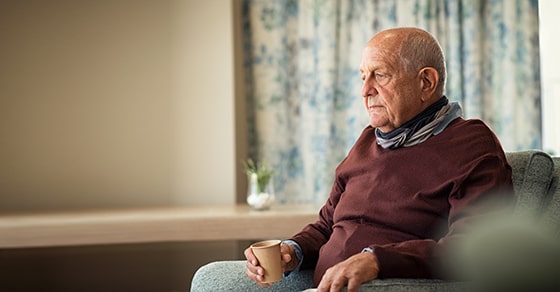
Aging is reshaping Canada. By 2036, nearly one in four Canadians will be a senior. These aren’t just numbers. They represent real people, including mothers, fathers, and neighbours, whose lives have long outlived early expectations and who continue to contribute to our families, communities, and economy.
However, contribution doesn’t shield anyone from loneliness. For seniors, emotional wellness is too often silently eroded by social isolation. What may begin as a missed outing or an unused guest room can quickly become a more profound absence. One that affects not just mood, but memory, motivation, and even longevity.
When social interaction has been missing, when voices in a home have suddenly stopped, mental health doesn’t simply hold steady. It declines. The link between elderly care and emotional well-being? It cannot be overstated.
The Subtle Ways That Isolation Creeps In
Not every senior becomes isolated overnight. A string of minor or significant changes, such as losing a beloved pet, retiring, and facing mobility challenges, may seem manageable on their own. Together, though, they create a situation few can face.
Lives are disrupted by transportation barriers, shrinking social circles, or even shifting family dynamics. Often, it isn’t intently planned that someone becomes distant from their community; it happens gradually. Furthermore, once isolation takes hold, the effects are deeply real and profound.
Increased anxiety, worsened depression, and even cognitive decline have all been linked to prolonged loneliness. Moreover, the longer a senior remains disconnected, the harder it can be to reintegrate them socially.
Companionship as a Form of Care
One of the most powerful interventions? Human connection. In-home caregivers are uniquely positioned to offer this. Through simple conversations, shared meals, or afternoon walks, they nurture more than routines — they nurture presence.
There’s delight as seniors rediscover the joy of laughter, and comfort as social routines return. Then, the strength of mental wellness and memory slowly mends. These aren’t luxuries, they’re lifelines.
It’s through meaningful, long-term relationships, and not routines alone, that healing occurs. When a senior engages regularly with a caregiver, their self-esteem and self-worth can begin to strengthen. Emotional wellness, once frayed, finds a thread again.
Dignity Through Daily Life
When caregivers help seniors with grooming, meals, or home upkeep, it’s not about dependence. It’s about choice. The ability to make decisions, even if they seem small to most people, restores a sense of autonomy.
Seniors, when supported with respect, not only feel safer, but they also feel dignified. It is essential for encouraging strong mental health. Many older adults have spent a lifetime making choices for others. Why should they now be denied the right to make choices for themselves?
It’s the view of some that helping our aging population with dressing or guiding daily tasks is basic assistance. However, in truth, what’s being preserved is far more sacred: identity, confidence, and peace of mind.
Anxiety, Safety, and the Power of Routine
Has your loved one ever worried about falling when no one is home? Have they hesitated to mention confusion with medications? These unspoken fears can weigh on their day-to-day functioning, and over time, they erode emotional stability.
When consistent, responsive care is provided, those fears are softened. What once felt overwhelming becomes manageable. Caregivers offer plans, structure, and a physical presence. These are all things that restore security and allow seniors to focus on living rather than fearing for their safety.
When routines are gently reintroduced, predictability returns. Seniors often sleep better, eat better, and feel more grounded. The storm of uncertainty lifts.
Movement for the Mind and Body
In-home caregivers often encourage seniors to engage in physical activity, which is critical for maintaining their mobility, as well as their physical and mental health. A short walk or stretching routine, done regularly, increases circulation and endorphins—two vital ingredients for emotional balance.
With each step, the mental fog may lift. With each small achievement, confidence may grow. The mind, much like the body, responds to use. When engaged consistently, it often performs better.
Let it be known that emotional strength is built on physical rhythms. When seniors are supported in staying active, they’re given tools that help them navigate their surroundings, as well as move through grief, change, and healing.
Supporting Families, Too
Too often, family caregivers become invisible casualties of elderly loneliness. While giving all their energy to support a loved one, they begin to lose their own. Yet, when respite care is offered, something powerful happens. Space is made for recovery. In that space, family members begin to re-engage with their own emotional needs.
Peace of mind is not a small thing, nor should it ever be treated that way. An in-home caregiver allows loved ones to see their relatives not from a place of obligation, but simply to enjoy each other’s company.
What if the caregiver could rest, without guilt? What if the senior could feel well cared for in their absence? With in-home support, those aren’t hypotheticals; they’re achievable possibilities.
Tailored Support That Truly Fits
No two seniors are alike. Their needs vary, their pasts diverge, and their preferences matter, which is why the most effective care isn’t mass-produced. It’s personalized. Care plans can be built around real preferences—what calms them, what they enjoy, what challenges they’re experiencing right now. Emotional wellness thrives when individuality is genuinely valued and respected.
Also, when care is tailored to match those nuances, trust begins to form. Seniors feel seen and understood, rather than merely assisted.
A Society That Can’t Afford To Forget</h2
When seniors are excluded or devalued, it isn’t only the individual who suffers; it is also the broader community. A loss of social engagement results in fewer volunteers, fewer mentors, and a weakening of the community fabric.
It must be said that these are people who raised children, taught lessons, and built the very neighbourhoods we live in. Their stories are part of our shared history. To let them fall into loneliness is to lose more than only their voice. It’s to silence a chapter of who we are.
What if, instead, we chose to act? What if we, as a society, saw elderly care not as a burden, but as a shared responsibility?
Ask4Care: Here When You Need Support
Choosing the right in-home senior care provider can feel daunting. However, the right one will listen, adjust, and walk with you, never ahead of you.
At Ask4Care, we bring over 50 years of healthcare staffing experience to every home we serve. Handpicked for empathy and adaptability, all of our licensed caregivers are more than just qualified. Our services are always insured, always flexible, and always centred on the human being at the heart of the care plan.
Reach out to us today by phone at 800-591-8311 or online. The proper care makes all the difference, and you don’t have to find it alone.

